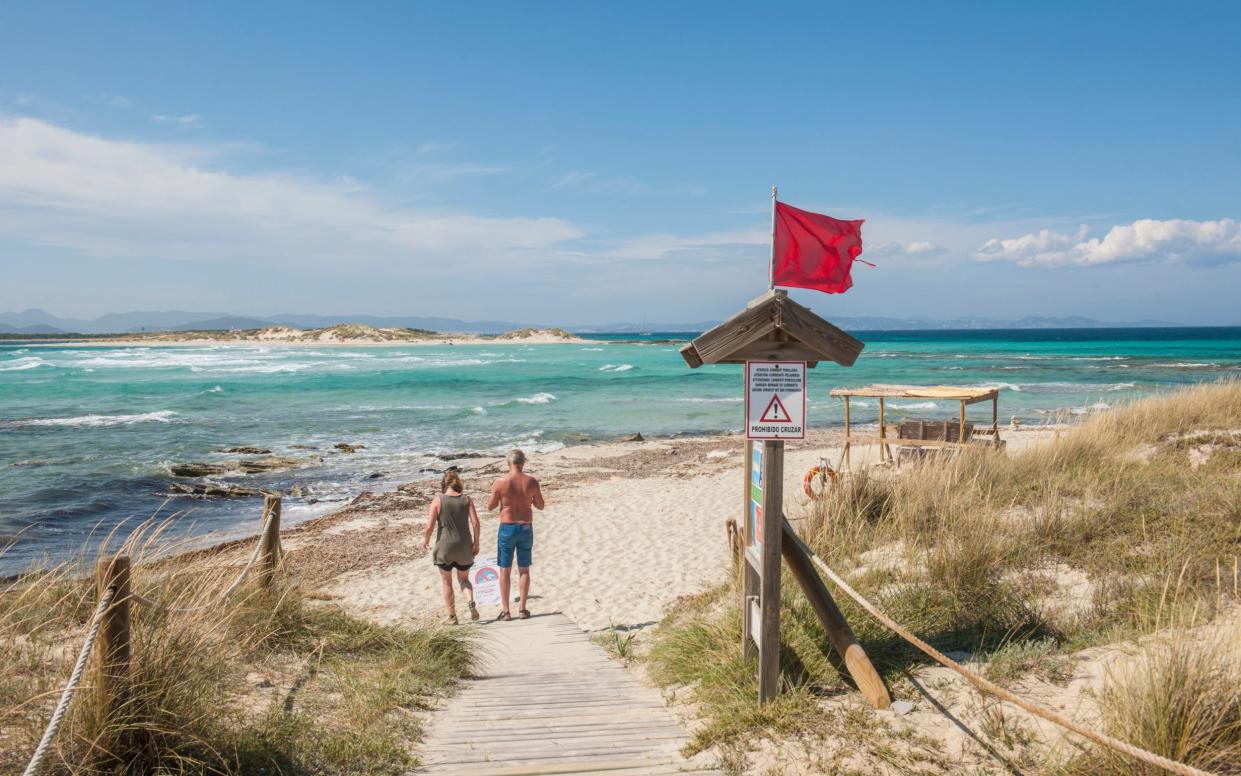What the 'green watchlist' means for summer holidays – and your other travel questions answered

The news that Malta has been added to the green list of countries from which returning holidaymakers don’t have to self-isolate is obviously encouraging, though it comes more than a month after it was first expected, and Malta is hardly a heavy hitter among Mediterranean sun and sand destinations.
And the suggestions from the Prime Minister that those with double vaccinations may be able to avoid such isolation after travelling is also welcome, though it is hugely frustrating that no clearer detail has yet been given about when or how this might work.
Much more ambivalent is the concept of the “green watchlist” of countries at risk of reverting back to amber which was also part of Thursday’s announcement. The idea of a watchlist was promised some weeks ago as a way – we presumed – of giving people some warning about the possibility of a country changing its status in a negative way.
We certainly didn’t expect it to be used as a sort of “definitely maybe” category, opening the door while threatening to slam it shut. Surely, if we – and the travel industry – are going to be able to plan properly, a destination needs to be given a clear green light when the government is confident they are safe.
We can only hope that the next review, in three weeks’ time, shifts the green watchlist destinations into a full, green category. After all, the list includes the Balearic islands of Majorca, Menorca, Ibiza and Formentera – the most popular destinations of all for British holidaymakers – as well as Madeira (which only came off the green list three weeks ago) and several key Caribbean islands, including Barbados, Antigua and Grenada. From next Wednesday, and for the time being at least, people can travel to these destinations without having to quarantine on their return and tour operators can go ahead with their programmes.
More generally, where does this all leave the millions of people who have holidays booked or are hoping to go away this summer? What is absolutely clear amid all this uncertainty is that you should only travel (or book) any green, green 'watchlist' or amber destination if you are comfortable with the significant risk that the traffic lights may suddenly change and you may have to self-isolate for up to 10 days on your return. And remember that some amber destinations may turn red (it has just happened to Tunisia) which involves an expensive 10 days in a quarantine hotel.
And you also need to reconcile yourself to the risk that your chosen destination may not allow you to travel in any case. As we now have the highest infection rate in Europe, restrictions are starting to kick in in an alarming way. Germany, Italy and Poland have all introduced quarantine for arriving Britons, as has France, except for those who are double-vaccinated.
Here are some other key questions answered.
My holiday is happening in the next few weeks, what should I do?
Millions of people who already have holidays booked this summer have only two pretty unsatisfactory choices. First is to make a decision now and postpone your holiday until a later date. This may depend on the policy of your tour operator or airline. Most are allowing a high degree of flexibility though “free” changes may cost you more than your current holiday because prices at a later date may be higher than you originally paid. (And note that if you have booked accommodation independently, you may not be able to change the dates.) The second option is simply to wait it out and see what impact changes in government policy will have before your departure date.
Anything else I should check?
Double check with your insurers that your policy will cover you – a change of status, or of Foreign Office advice – just before you travel might well invalidate some cover.
I’m sick of this uncertainty, can I cancel and get my money back?
Almost certainly not if you act unilaterally. If you don’t want to go on holiday and you want a refund rather than a postponement, your only way of doing so is to wait in the hope that your tour operator cancels first. Then it will have to refund you.
I’m thinking of booking, am I mad?
I would be extremely cautious about this – unless you are planning well ahead for a special trip in 2022 for example. The best strategy for new bookings for travel this year is to commit as late as possible, perhaps a week or two before departure so that you lessen the chances of a sudden change in policy or the infection rates. And book with a tour operator which has a flexible policy on changing dates if you have to.


